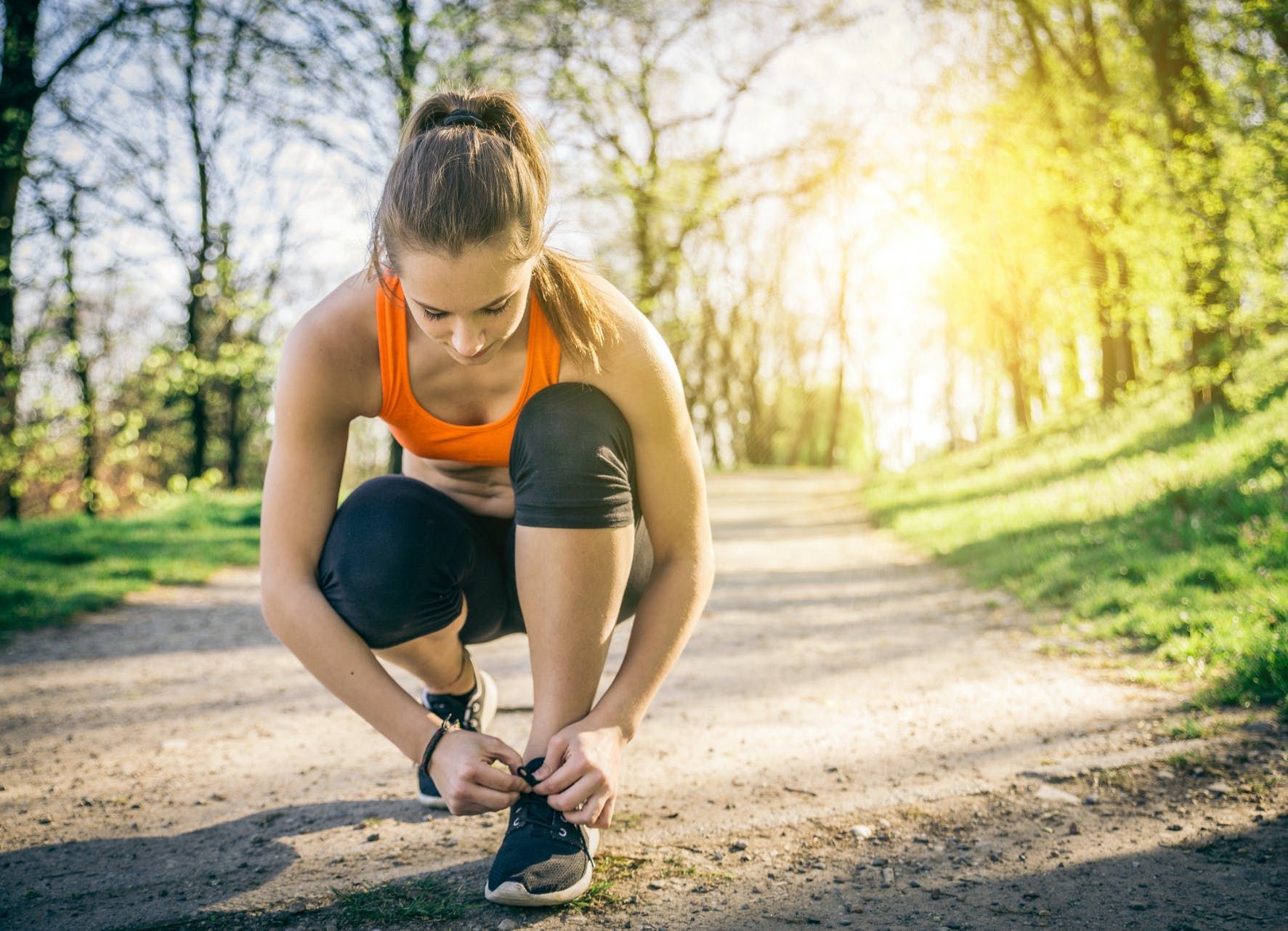Higher, faster, stronger: This is the mantra of many athletes—professional, amateur and hobbyist—everywhere. However, athletes may reach their goals at a cost.
First, there’s the preparation for performance—making sure you’re rested and in peak condition mentally and physically. And on the day of your athletic event, you must feel relaxed and focused.
FOLLOW US ON FACEBOOK and INSTAGRAM
Then, there’s the recovery afterward where you need to deal with the pain of the performance, the damage done to muscles and tissue, and any lingering tension from competition.
While there’s a host of treatments and techniques to deal with sports performance and recovery, cannabidiol (CBD) is increasingly moving up the podium among athletes who want a more natural way to:
- Deal with pain and inflammation
- Address muscle damage
- Replenish themselves with deep sleep
- Relax frayed nerves
“Some people have [CBD] the night before a workout,” says triathlete Andrew Talanksy in an interview with GQ. “Usually less have it during. And most are stoked to have it after as recovery.”
For his part, Andrew ingests CBD capsules to:
- Ease regular post-performance aches and pains
- Get much-needed sleep
- Reduce the stress of competition
RELATED: CANNABIS FOR ATHLETES? VAPEXHALES FOUNDER SAYS YES
“CBD for exercise-induced inflammation is absolutely the next big area we need to explore,” says Thorsten Rudroff, an exercise scientist and director of the Integrative Neurophysiology Laboratory at Colorado State University, in a U.S. News interview.
But he adds: “Most of what we know about CBD and exercise is based on anecdotal reports. There’s basically no research on the topic. We need to investigate CBD’s effects on inflammatory biomarkers in athletes and exercise recovery.”
Athletes Turn to CBD to Address Pain & Inflammation
Two years ago, the World Anti-Doping Agency and the U.S. Anti-Doping Agency removed CBD from their list of prohibited substances. Though tetrahydrocannabinol (THC), with its psychoactive effects, as well as synthetic cannabinoids, are still on the list of banned substances.
So, athletes are free to explore consuming CBD to see how it can supplement the natural defenses of the body’s endocannabinoid system (ECS) to deal with pain and inflammation.
Thorsten points out that he’s seen increasing numbers of collegiate and professional athletes, and older adults, consuming CBD oils and edibles right after exercise, hoping to recover more quickly and effectively.
Inflammation after a hard workout isn’t in itself a bad thing. It triggers the body’s repair mechanisms, allowing muscle tissue to grow back stronger, improving future athletic performances.
But too much tissue damage and inflammation can injure the body with strains and sprains, and result in poor athletic results.
Traditional ways to cope with inflammation and pain include:
- Eating antioxidant-rich foods
- Taking ice baths
- Consuming over-the-counter nonsteroidal anti-inflammatory drugs (NSAIDs) like ibuprofen (Advil) and naproxen sodium (Aleve)
- Using opioids (for severe pain management)
Studies have shown that cannabis can help reduce pain, which can include stiff joints and musculoskeletal pain from exercise.
And while athletes have used NSAIDs for decades, they’re also associated with kidney damage and increased risk of heart attack and stroke. So, some athletes are finding that CBD can relieve pain with minimal side effects.
While opioids may be very successful at managing pain, they can come at a cost that may include addiction and death. CBD isn’t as successful at dealing with high-intensity pain, but may have a role to play in long-term pain management, taken on its own or alongside other medications.
There are also some suggestions that CBD can help slow the breakdown of muscles after exertion and even promote more muscle building. For example, preliminary research offered by the Brazilian Journal of Medical and Biological Research suggests that CBD works in conjunction with the ECS to interfere with cortisol, the stress hormone that reduces protein production and gets in the way of tissue growth.
But Can CBD Improve Actual Sports Performance?
When it comes to sports performance itself, CBD’s benefits are harder to quantify. Yes, the cannabinoid can help relieve stress and promote sleep, both of which can help athletes compete better.
But this isn’t the same as a direct link in helping during the event or game. And when marathon runners talk about the help cannabis gave them while out on the course, it’s usually in regard to the effects of THC, not CBD.
Says Michael Kennedy, a cardiologist and clinical pharmacologist who examined 15 studies on cannabis and exercise performance: “Different types of cannabis may have a lot of therapeutic values—but none of it will make you run fast, and it won’t make you stronger.”
Ways Athletes Can Consume CBD
In taking CBD, athletes have a choice of:
- Oils
- Capsules
- Infused foods and drinks
- Vaping
For the fastest pain and inflammation relief, you can choose from:
- Vaping
- Sublingual tinctures
- Topical creams applied directly to the injured area
Though vaping may be the consumption method that produces effects the fastest, many athletes would probably resist doing anything that risks stressing their lungs.
For longer-lasting effects, infused drinks and edibles may be the way to go.
It can get tricky when deciding what CBD dose to consume. First, it’s sometimes hard to calculate doses, because the amount of CBD that’s actually in different products varies so much and the bioavailability (how much CBD is actually accessible in your body) of each consumption method is different. The most precise way to take CBD may be capsules, or by calculating how many milligrams of CBD are in a given volume of a tincture.
But as a rule of thumb, if you’re new to CBD, it’s best to start with a low dose and work your way up. After all, you have to learn to walk before you run.
Photo credit: oneinchpunch/Shutterstock.com
Want to try CBD, but don’t know where to start? Shop our selection of high-quality, lab-tested CBD products and have them shipped to your door. And if you have questions about CBD, ask them and our community will answer.






